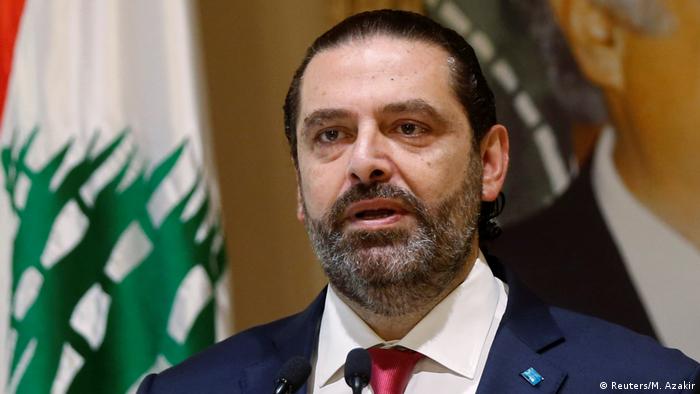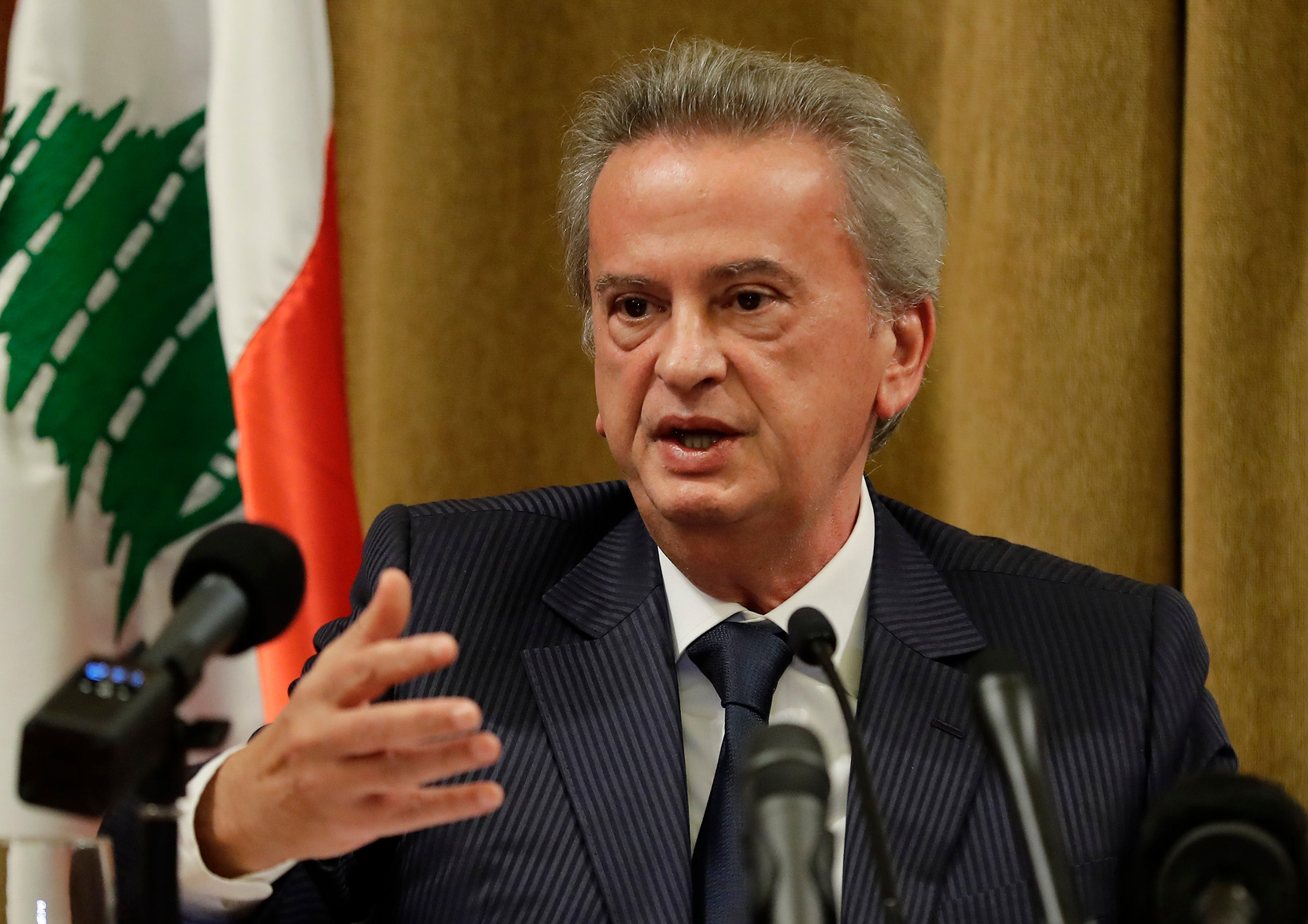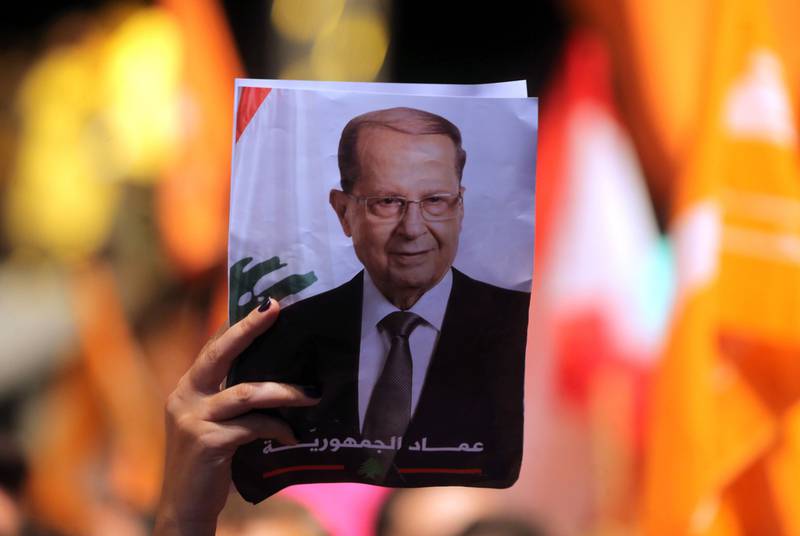
By Najia Houssari -- arabnews.com -- BEIRUT: Just four people have submitted their candidacies for Lebanon’s parliamentary elections planned for May since the nomination process opened on Jan. 10. The next house of representatives will elect a new president in October, five months after the parliamentary elections. Some 250,000 Lebanese expats have registered abroad to vote in the upcoming elections to choose 128 MPs. Only one-third of them registered for the previous elections, reflecting enthusiasm for change. Zeina Helou, an expert in local affairs, told Arab News that those who submitted their candidacies belonged to the opposition. Helou said there was a delay in the process because opposition figures had been questioning the possibility of parliamentary elections going ahead. There were further delays due to the electoral law requiring candidates to join electoral lists to qualify as a contestant.
The parliamentary elections are expected to be heated as the Lebanese people are motivated for political upheaval in a system accused of corruption. Candidates are also required to deposit LBP30 million ($19,800), which is far higher than the LBP8 million deposit for previous parliamentary elections. Helou said that things might take shape when registration of the candidates’ lists begins, with the deadline set between Mar. 16 and April 4. Amid the low candidacy numbers, the ruling political forces were still studying the possibility of maintaining their electoral allies, with several alliances broken up as a result of the political crisis.

Central bank governor Riad Salameh
Beirut (AFP) – A Lebanese judicial delegation will meet French authorities in Paris next week to discuss investigations into Lebanon's central bank governor Riad Salameh, a judicial source said on Thursday. Salameh is among the top Lebanese officials widely blamed for the country's unprecedented financial crisis that the World Bank says is of a scale usually associated with wars. He is the target of a series of judicial investigations in Lebanon, Switzerland and France on suspicion of fraud, money laundering and illicit enrichment, among other allegations. Salameh has repeatedly denied the accusations.
Next week, Jean Tannous, the Lebanese prosecutor leading a local probe into Salameh, and Raja Hamoush, another Lebanese judge, will meet with French authorities, the judicial source told AFP. The visit "will focus on cooperation and exchange of information between the two sides regarding suspicions around Salameh and some of his close associates with regards to... money laundering, illicit enrichment," among other crimes, the judicial source added, without specifying the exact date of the meeting. France had opened a probe into Salameh's personal wealth in May 2021 following a similar move by Switzerland.

ما لم تَحدُث انتفاضةٌ شعبيّةٌ نوعيّةٌ قبلَ الانتخاباتِ النيابيّةِ في أيّارَ المقبل تُوقِدُ شُعلةَ التغيير، قد يَختارُ معظمُ الشعبِ اللبنانيِّ نوّابَه من بينِ مرشَّحي قوى المنظومةِ السياسيّةِ التقليديّة. ليس هذا التوقّعُ بشيرَ تغيير. لم يَعُد الصِراعُ بين الانتفاضةِ الشعبيّةِ والمنظومَةِ السياسيّةِ التقليديّةِ بِقدْرِ ما صار بين أهلِ المنظومةِ أنفسِهم، وبين دعاةِ التغييرِ أنفسِهم. تَهمّشَت نسبيًّا القوى الجديدةُ التي تَعتبرُ نفسَها قوى التغييرِ، واغْتربَ بعضُها في ولاءاتِه على غرارِ التقليديّين. والرياحُ العاتيةُ لا تَرحَمُ الأغصانَ الطريّةَ المبعثَرة.
وإذا كان التنافسُ بين قِوى المنظومةِ التقليديّةِ عاملًا يُساعدُها لتَتقاسَمَ في ما بينَها نتائجَ الانتخاباتِ النيابيّةِ، فالانقساماتُ بين القِوى الجديدةِ عاملُ ضُعفٍ يُعطِّلُ انطلاقَها السياسيَّ والانتخابيَّ ويَحرِمُها الكتلَ الشعبيّةَ الناخبَةَ التي تؤمِّنُ الحاصِلَ والصوتَ التفضيليّ. قانونُ الانتخاباتِ الحاليُّ، بحدِّ ذاتِه، ضِدُّ مصلحةِ الوجوهِ الجديدةِ شِبهِ المجهولة. هذا قانونُ أصحابِ القواعدِ الثابتةِ والخدَماتِ المتوارَثةِ والثرَواتِ الطائلة. وإذا كانت أكثريّةُ دعاةِ التغييرِ تَفتقِرُ إلى القواعدِ الشعبيّةِ الثابتةِ والخدَمات، فبعضُها يَسْتجِرُّ إمداداتٍ ماليّةً تفوقُ أحيانًا قُدُراتِ بعضِ القوى التقليديّة...

by thenationalnews.com -- Michael Young -- Lebanon's President Michel Aoun’s efforts to salvage what remains of his calamitous mandate are having less and less of an impact on the political situation in Lebanon. Mr Aoun’s failed call for a national dialogue in the past two weeks was the latest indication that his political rivals are seeking to run the clock out on his presidency. Mr Aoun’s term will end later this year, while parliamentary elections are scheduled for May. Since his return to Lebanon in 2005 from France, where he lived in exile for 14 years, Mr Aoun, aided by his son-in-law Gebran Bassil, has been a destabilising force in post-war Lebanese politics, at least for the politicians who had ruled the country until then. This is not to suggest that Mr Aoun was better than his rivals – he and Mr Bassil’s greatest ambition was to become part of the cartel in power, even as they claimed to stand against its pervasive corruption.
Few took their anti-corruption line seriously, as Mr Bassil is regarded by many Lebanese as being at the centre of illicit activities. However, Mr Aoun’s and Mr Bassil’s alliance with Hezbollah gave them leverage, and in 2016, the party’s support for Mr Aoun’s presidential bid was the primary factor leading to his election, after a two-year political vacuum it had imposed to force all major parties to back him. Once in office, Mr Aoun failed to become a unifier. On the contrary, he gave Mr Bassil latitude to engage in lucrative patronage activities and impose his preferences on the political class. This soon alienated the then prime minister, Saad Hariri, as well as the parliament speaker, Nabih Berri, leaving Mr Aoun and Mr Bassil relatively isolated, though they still enjoyed Hezbollah’s backing.
Khazen History


Historical Feature:
Churches and Monasteries of the Khazen family

St. Anthony of Padua Church in Ballouneh
Mar Abda Church in Bakaatit Kanaan
Saint Michael Church in Bkaatouta
Saint Therese Church in Qolayaat
Saint Simeon Stylites (مار سمعان العامودي) Church In Ajaltoun
Virgin Mary Church (سيدة المعونات) in Sheilé
Assumption of Mary Church in Ballouneh
1 - The sword of the Maronite Prince
2 - LES KHAZEN CONSULS DE FRANCE
3 - LES MARONITES & LES KHAZEN
4 - LES MAAN & LES KHAZEN
5 - ORIGINE DE LA FAMILLE
Population Movements to Keserwan - The Khazens and The Maans
ما جاء عن الثورة في المقاطعة الكسروانية
ثورة أهالي كسروان على المشايخ الخوازنة وأسبابها
Origins of the "Prince of Maronite" Title
Growing diversity: the Khazin sheiks and the clergy in the first decades of the 18th century
Historical Members:
Barbar Beik El Khazen [English]
Patriach Toubia Kaiss El Khazen(Biography & Life Part1 Part2) (Arabic)
Patriach Youssef Dargham El Khazen (Cont'd)
Cheikh Bishara Jafal El Khazen
Patriarch Youssef Raji El Khazen
The Martyrs Cheikh Philippe & Cheikh Farid El Khazen
Cheikh Nawfal El Khazen (Consul De France)
Cheikh Hossun El Khazen (Consul De France)
Cheikh Abou-Nawfal El Khazen (Consul De France)
Cheikh Francis Abee Nader & his son Yousef
Cheikh Abou-Kanso El Khazen (Consul De France)
Cheikh Abou Nader El Khazen
Cheikh Chafic El Khazen
Cheikh Keserwan El Khazen
Cheikh Serhal El Khazen [English]
Cheikh Rafiq El Khazen [English]
Cheikh Hanna El Khazen
Cheikha Arzi El Khazen
Marie El Khazen